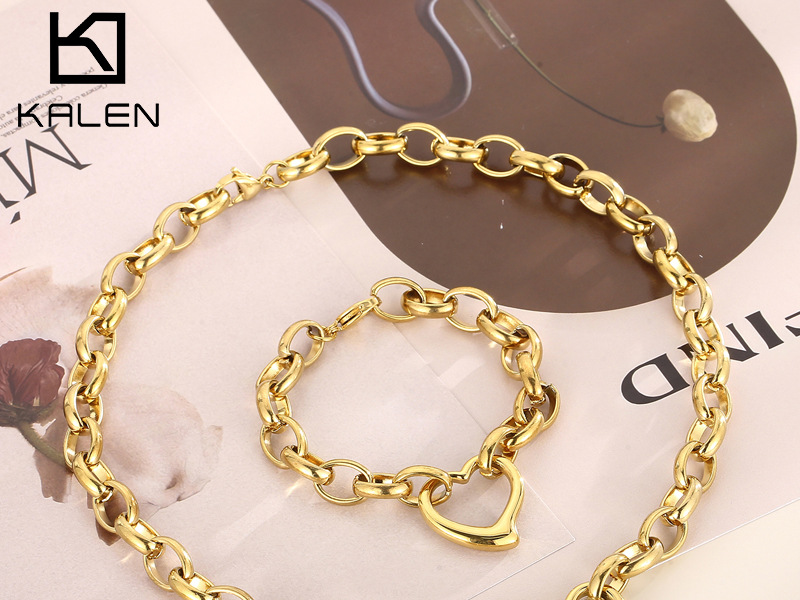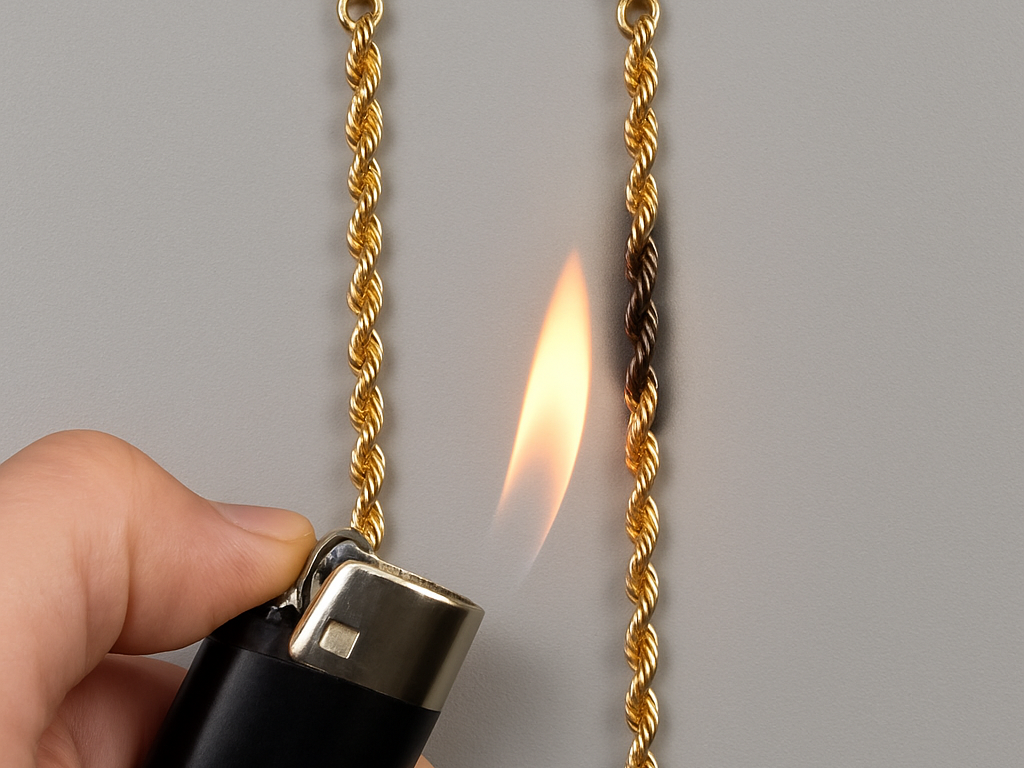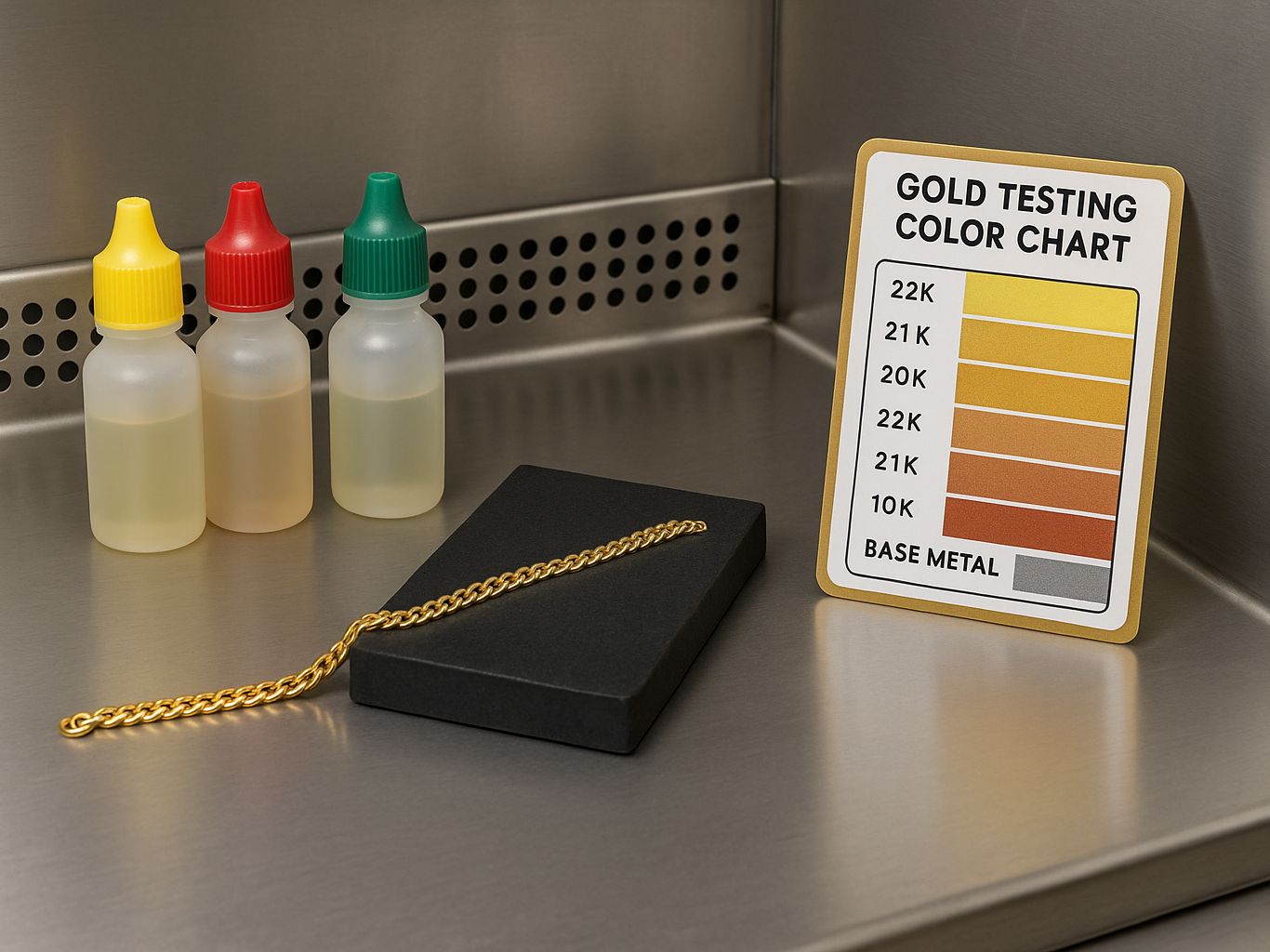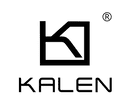
Blog
Lighter vs XRF: Which Gold Test Saves Wholesalers Money?

Lighter vs XRF: Which Gold Test Saves Wholesalers Money?

I once scorched an entire tray of vermeil chains after a buyer demanded a “quick flame check.” That ten-second stunt cost me two clients and \$14 000 in re-plating.
A lighter reveals obvious plating, but it is only 80 % reliable and can destroy perfectly good stock; professional tools such as XRF guns and acid kits push accuracy above 98 % without damaging inventory.
I now run a three-tier verification line—magnet, acid, XRF—before anything leaves my warehouse.
Does a lighter really expose fake gold?
I start with the physics: gold resists fire, plated metals blister fast.
Hold a flame for 20 seconds—pure gold stays bright; plating flakes or turns black within seven seconds, yet the heat can weaken solder joints and dull polish.
Dive Deeper
H3 | Reaction Table
| Surface Change | Time to Appear | Likely Metal | Reliability |
|---|---|---|---|
| None | ≥20 s | 14 K–24 K gold | Medium |
| Purple/Blue Tint | 5–7 s | Titanium under-plate | High |
| Black Soot | 1–3 s | Brass or copper alloy | Very high |
| Flaking | Instant | Electro-plated layer | Certain |
Risks I learned the hard way
- Micro-fractures in hollow chains.
- Gem settings loosen at 200 °C.
- Charred finish forces re-polishing.
Which industrial tests give lab-grade accuracy?
My warehouse now uses three non-destructive tools.
A handheld XRF gun scans 300 pieces an hour with ±0.3 % precision; acid kits back-check samples; an electronic density tester spots filled gold.

Dive Deeper
H3 | Method Snapshot
| Test Method | Accuracy | Pieces/Hour | Cost/Test | Accepted Certificate |
|---|---|---|---|---|
| XRF Gun | ±0.3 % | 250–350 | \$0.18 | ISO 17025 |
| Acid Kit | ±1.5 % | 80–100 | \$0.32 | LBMA |
| Electronic | ±5 % | 120–150 | \$0.09 | Internal QA |
Workflow I follow
- Wipe chain with alcohol pad.
- XRF three points—clasp, mid-link, tag.
- Log spectrum and attach PDF to batch file.
- Pull 2 % random samples for acid confirmation.
How does the cost of errors compare with pro equipment?
I ran the numbers after one disastrous flame test.
A single \$25 000 order can lose \$18 700 when plating slips through; an XRF unit pays for itself in eight months by stopping those losses.
Dive Deeper
H3 | Cost-Risk Matrix
| Risk Scenario | Loss on \$25 K Batch | Tool That Prevents It |
|---|---|---|
| Plated Core | \$18 700 | XRF thickness readout |
| Wrong Karat | \$6 200 | Acid + touchstone |
| Customs Hold | \$3 400 | Fire-assay cert copy |
Hidden lighter costs include:
- 1.5 % inventory ruined by heat each quarter.
- 22 minutes manual time per piece.
- 18× greater fraud exposure than XRF.
Conclusion
The lighter trick is fine for a street demo; in real wholesale logistics, only certified tools keep shipments safe and profits intact.
